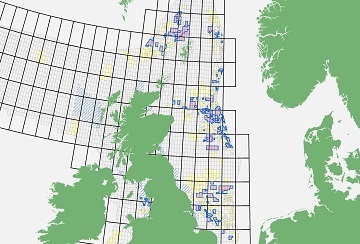Offshore Energies UK (OEUK), the trade body for the sector, welcomed the offer of new oil and gas licences by the North Sea Transition Authority (NSTA) and said they “will strengthen homegrown energy security as the sector continues its expansion in wind, hydrogen and carbon capture and storage.”
OEUK said a total of 27 licences have been offered in quicker-to-production areas with more to follow subject to additional environmental checks.
“Oil and gas production supports 200,000 jobs in the UK today,” said OEUK.
“A recent report from Robert Gordon University found the wider offshore energy workforce could increase further if the UK delivers a managed transition that avoids a rapid decline in the domestic production of oil and gas before offshore wind and other projects are delivered at the scale required to deliver a net zero economy by 2050.
“Licensing is the first step taken by energy production companies with the regulator to find and produce homegrown supplies, managing the nation’s reliance on imports and safeguarding its world-class energy workforce.
“Over the last decade, the average time between exploration and production in UK waters has been four years and eight months.
“Today, 75% of the UK’s energy needs are provided by oil and gas. The UK is a net importer of oil and gas, meaning it consumes more than it produces domestically.
“There are currently 284 active oil and gas fields in the North Sea and by 2030 around 180 of those will have ceased production due to natural decline.
“The industry needs the churn of new licences to ensure no cliff edge in domestic production.
“OEUK has warned that without fresh investment the UK will be reliant on oil and gas imports for 80% of its needs by 2030.”
Offshore Energies UK CEO David Whitehouse said: “This announcement is a boost for UK energy security and for the 200,000 people in jobs supported by the offshore energy sector.
“These are the very people we need to deliver reliable supplies of homegrown energy produced in the UK, for the UK.
“We all recognise that our energy system must change, and our industry includes companies that are expanding into renewables while using their expertise to pioneer ever cleaner energy production.
“The reality of the energy transition is that we need both oil and gas and renewables in an integrated system to protect the UK’s energy needs over the coming years.
“Last year filling the fuel import gap cost the UK £117bn. That’s a lot of money spent supporting the economic growth of other producing countries.
“With careful management and collaboration, the UK can become the gold standard of energy transitions. We can drive economic growth, reach our climate goals and avoid a future where we increasingly import our energy and export our jobs.
“Energy security is national security. We need pragmatic policy and political consensus if we are to realise £200 billon potential company investment in UK wind, hydrogen and carbon capture, and oil and gas production over this decade, with all the jobs and work for our supply chains this will bring.”
Today’s announcement comes over a year after the 33rd Licensing round was opened in October 2022, with applications closing at the end of January 2023.
The NSTA said: “North Sea production has received a significant boost today with the offer of 27 new licences in areas prioritised because they have the potential to go into production more quickly than others.
“In addition to the 27 licences, six more blocks, which were also ready to be offered, have been merged into five existing licences.
“All of the 258 Blocks which have been applied for have been through the initial Habitat Regulation Assessment (HRA) and the blocks being awarded today have been identified as not requiring further assessment.
“These licences in the Central and Northern North Sea, and West of Shetland were awarded first to let operators press ahead with their plans to explore and develop oil and gas resources.
“In recent years, the average time from licence award to production is around five years.
“The 33rd Oil and Gas Licensing Round was launched on 7 October 2022 with 931 blocks and part-blocks made available for application.
“In total, the North Sea Transition Authority (NSTA) received 115 applications from 76 companies for 258 blocks/part-blocks when the application window closed on 12 January 2023. This was the highest participation since the introduction of the Innovate Licences in 29th Round in 2016/17.
“Today’s announcement is part of the NSTA’s wider efforts to support the UK’s energy security options, which includes the licensing of offshore gas stores and engagement with industry on opportunities to reopen closed wells.
“There are currently 284 offshore fields in production in the UK North Sea and an estimated 5.25bn boe in total projected production to 2050.
“Oil and gas currently contribute around three quarters of domestic energy needs and official forecasts show that, as we transition, they will continue to play a role in our energy mix for decades to come.
“Consideration of other marine users is taken into consideration throughout project lifecycles, including at licence award and stewardship process stages.
“Developing a site typically requires additional consents, including from the Department of Energy Security and Net Zero, and the NSTA works closely with government, regulators, and other bodies such as The Crown Estate and Crown Estate Scotland to manage this process and to identify and mitigate as appropriate important spatial co-location considerations.”
